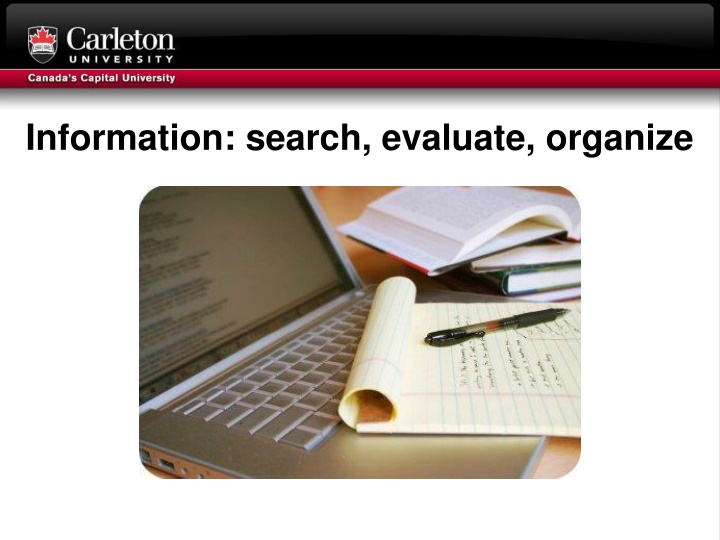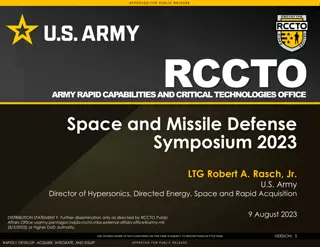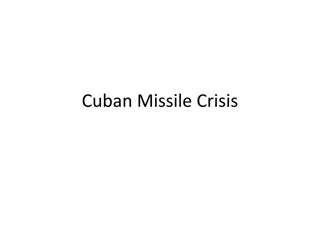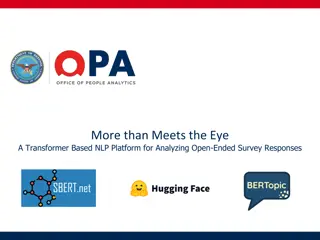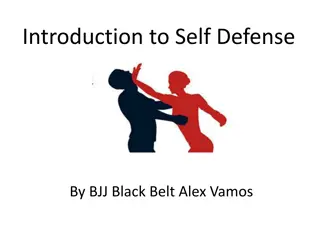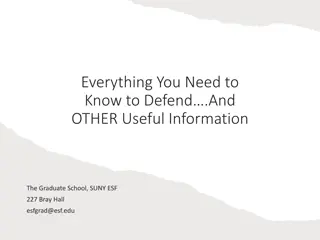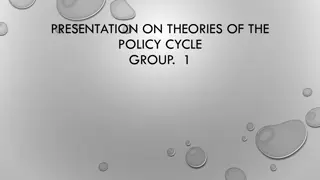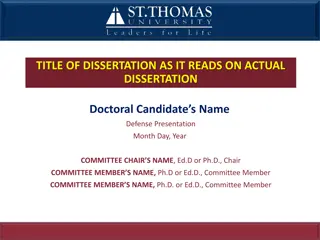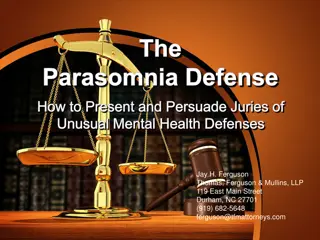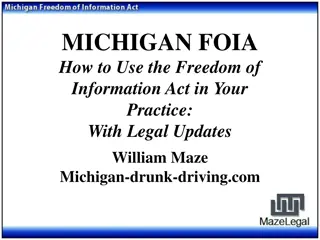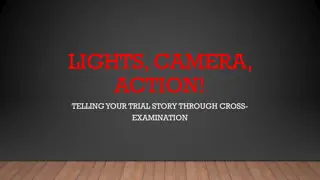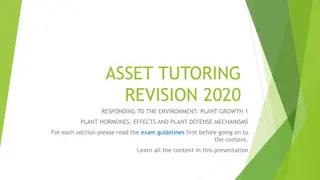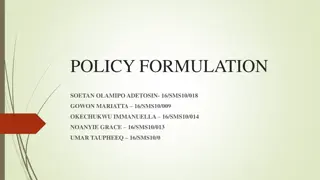The Evolution of US Missile Defense Policy
The evolution of US missile defense policy, from the Cold War era to present-day initiatives, including the ABM Treaty, National Missile Defense Act of 1999, and removal of the word "limited" in missile defense strategies.
Download Presentation

Please find below an Image/Link to download the presentation.
The content on the website is provided AS IS for your information and personal use only. It may not be sold, licensed, or shared on other websites without obtaining consent from the author.If you encounter any issues during the download, it is possible that the publisher has removed the file from their server.
You are allowed to download the files provided on this website for personal or commercial use, subject to the condition that they are used lawfully. All files are the property of their respective owners.
The content on the website is provided AS IS for your information and personal use only. It may not be sold, licensed, or shared on other websites without obtaining consent from the author.
E N D
Presentation Transcript
Outline Searching Tools Citation managers
Question What is the difference between an empirical journal article and a review journal article?
Empirical Article IMRaD Format
Review Article
Narrowing/Broadening a Topic Often a challenge Need to do some background reading | Overview of the topic | Terminology used Concept mapping can help | identify subtopics | narrow your focus | with developing an outline
Example Example:
Framing a question What entity are you studying? | Gene, protein, flora, fauna, system What is happening to it (exposure)? What are you doing to it (intervention)? (independent variable) | Base pair deletion in a gene | Catch and release program What outcome(s) are you interested in? (dependent variable) | Often want to find the relationship between independent and dependent variables
Search A balancing act | Sensitivity Capture most relevant results Capture more irrelevant results Spend more time filtering/screening | Specificity (Precision) Capture some relevant results Capture fewer irrelevant results Risk missing relevant results
Searching for information Main ideas = concepts (tend to be nouns) Search terms for each concept Put them together Get some results Look at the results Repeat
When do you look for information in the research process? Conclusion Conclusion Observation Observation THE THE SCIENTIFIC SCIENTIFIC METHOD METHOD Question Question Analysis Analysis Experiment Experiment Hypothesis Hypothesis
When do you look for information in the research process? Concepts Search terms Evaluate Looking for information Conclusion Conclusion Observation Observation THE THE Search Combine SCIENTIFIC SCIENTIFIC METHOD METHOD Question Question Analysis Analysis Experiment Experiment Hypothesis Hypothesis
When do you look for information in the research process? Conclusion Conclusion Observation Observation THE THE SCIENTIFIC SCIENTIFIC METHOD METHOD Question Question Concepts Analysis Analysis Search terms Evaluate Looking for information Experiment Experiment Search Combine Hypothesis Hypothesis
When do you look for information in the research process? Conclusion Conclusion Observation Observation THE THE SCIENTIFIC SCIENTIFIC METHOD METHOD Question Question Analysis Analysis Experiment Experiment Hypothesis Hypothesis Concepts Search terms Evaluate Looking for information Search Combine
When do you look for information in the research process? Conclusion Conclusion Observation Observation THE THE SCIENTIFIC SCIENTIFIC METHOD METHOD Question Question Analysis Analysis Concepts Search terms Evaluate Looking for information Experiment Experiment Hypothesis Hypothesis Search Combine
When do you look for information in the research process? Concepts Search terms Evaluate Looking for information Conclusion Conclusion Observation Observation THE THE Search Combine SCIENTIFIC SCIENTIFIC METHOD METHOD Question Question Analysis Analysis Experiment Experiment Hypothesis Hypothesis
Techniques for Searching Boolean operators | AND (for combining different concepts, finds fewer results) | OR (for combining related terms, finds more results) | NOT (for eliminating irrelevant results, finds less results) Phrase searching | Quotations extreme environment Truncation | Asterix oxygen* Brackets | Isolate your main concepts, gather together your search terms (lake OR river) AND (mollusk OR Mollusca)
Strategies for Searching Concepts Search terms Discover new terms Filters | Date | Subject categories | Document types | Search within Author keywords Controlled vocabulary Related/Similar articles Author search Citation tracking Review articles
Interlibrary loan Can take a day or two, sometimes just hours, to receive an electronic copy of an article If you do a search using a library database, the ILL form auto-populates Free service
Types of AI tools to help with research Generate answers | Requires a question/prompt | Provides Summary Matrix of data extraction Consensus of evidence Link citations | Requires a seed article | Provides Connections to relevant literature not found by keyword search Visualizations The following tools use academic sources only!
Generate answers A library with bookshelves and a room with a bookcase Description automatically generated with medium confidence A logo with a book and a hexagon Description automatically generated A blue text on a white background A logo with blue and orange squares Description automatically generated A logo with a letter c
Link citations A close-up of a logo Description automatically generated A low poly rabbit with black text Description automatically generated A black text with black dots Description automatically generated
Search Tool Demonstration Research Rabbit Web of Science PubMed Google Scholar Elicit
What is ChatGPT Chatbot (app designed to mimic human conversation) | Uses large language model (computation model capable of language generation) | Vocabulary based on frequencies extracted from mainly English content | Training data is gathered from internet content Designed to have a conversation with a user, who steers and refines the conversation (prompt engineering)
This tool does NOT use academic sources only/accurately!
Before using generative AI tools, it is fundamental to understand their limitations and strengths, what tasks they were created for and what type of data they were trained on. Using ChatGPT for academic purposes Possible Uses Generate ideas for research questions or projects Assist you in overcoming writer s block Identify general starting points for finding sources Brainstorming on your topic Finding synonyms to your keywords & terms related to your concepts Suggest possible research topics in your field Understand and/or translate a text Improve writing quality Clarify concepts and provide examples for a better comprehension Generate games and activities to extend learning Reformat citations and references Translate your own writing Based on the infographic created by Majela Guzman (University of Ottawa Library). Partially based on UNESCO. (2023). ChatGPT and Artificial Intelligence in Higher Education: Quick Start Guide (p. 1-15). https://bit.ly/49agGwE
Generative AI tools such as ChatGPT are powerful and useful tools when used the right way for the right task, but not for tasks that they have not been designed for. Using prompting techniques can improve the tool s performance. Using ChatGPT for academic purposes Not C Recommended Creating content for course assignments (risk of plagiarism) If you need to use reliable and/or academic sources If you need the answer to be true and complete For answering a research question If you need to show methodological transparency in your research To find available evidence on research topics If you need an objective perspective on a topic If you need a deep analysis of a topic Based on the infographic created by Majela Guzman (University of Ottawa Library). Partially based on UNESCO. (2023). ChatGPT and Artificial Intelligence in Higher Education: Quick Start Guide (p. 1-15). https://bit.ly/49agGwE
Impact of ChatGPT ChatGPT consumes 25 times more energy than Google | The Brussels Times Newsroom ChatGPT And Generative AI Innovations Are Creating Sustainability Havoc | Forbes magazine Global electricity demand from data centres could double towards 2026 | International Energy Agency
Search Activity Library search tools | Go to the library website | Click on the Databases link beneath the big search box | Select the database you will be searching by the first letter of the database name PubMed Web of Science Google Scholar AI tools | Search for the tools online and create an account Research Rabbit Elicit
More information needed? Fill in gaps, flesh out evidence | Search strategically | Read strategically The research writing process is not linear, it is iterative | Search > Read > Think > Write | Repeat Concepts Search terms Evaluate Looking for information Search Combine
Read strategically Content of an article Title/Abstract Introduction Questions to ask Do I care? What is already known? Hypothesis? Appropriate? What did they find? Do you agree? So what? Methods Results Discussion/Conclusion
Read strategically What else? Author Journal Questions to ask Name and affiliation? Peer-reviewed, impact, subject specific? Recent? Relevant? Conflicts of interest, funders? Useful for confirming, finding out more Date Keywords Declarations References
Confirmation Bias Cherrypicking the facts to support an existing belief https://thedecisionlab.com/biases/confirmation-bias
Synthesis/Review Colour coding synthesis example Literature review matrix
Citation Management Citation Management Zotero Demonstration
